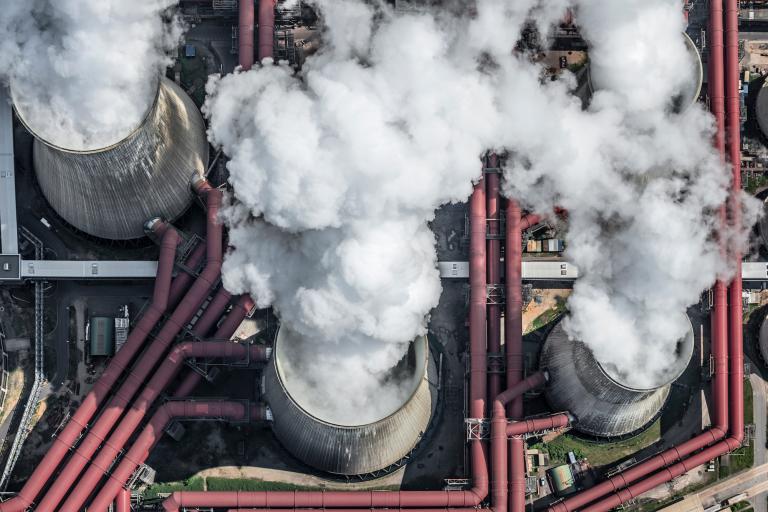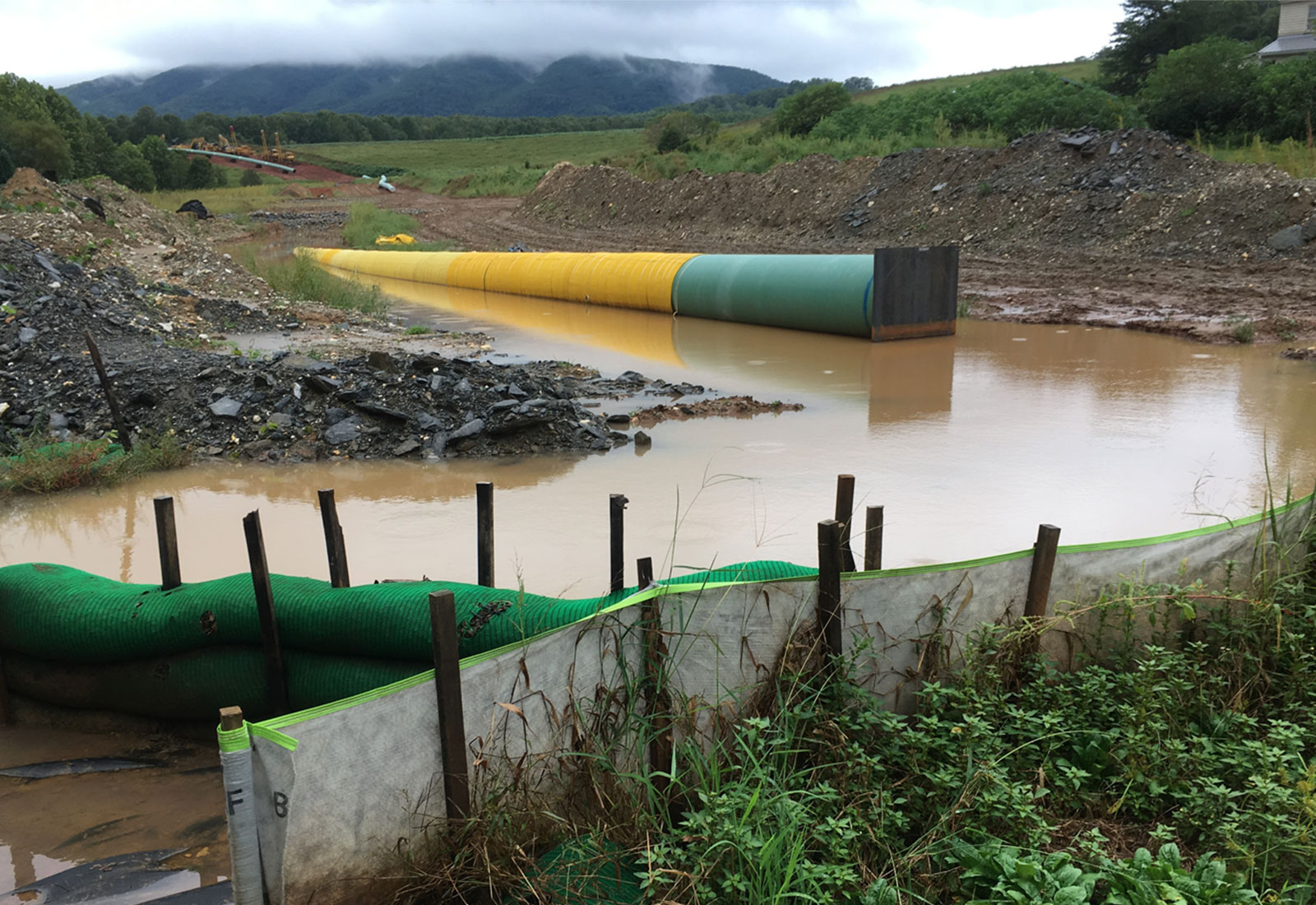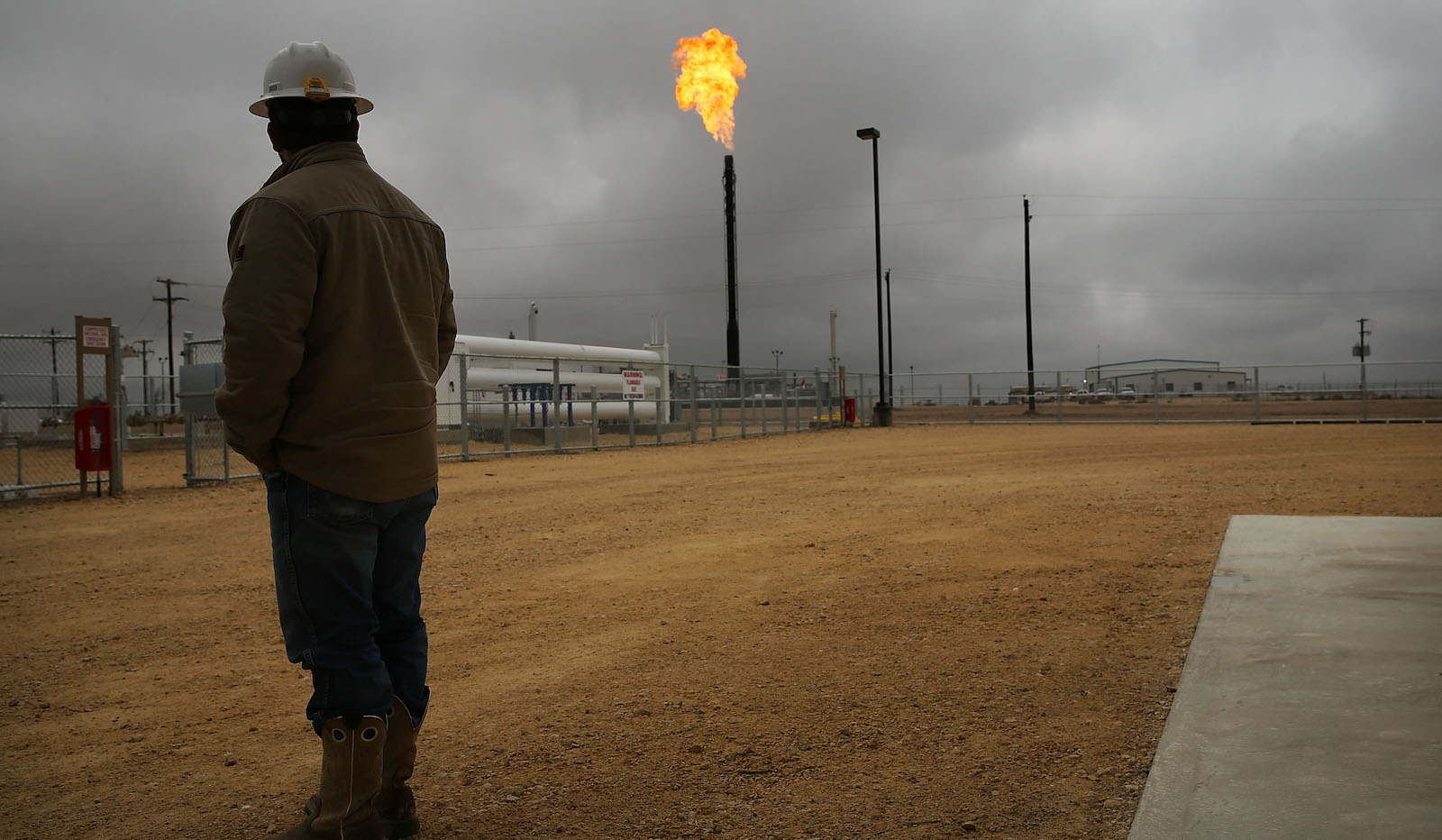When Crystal Cavalier-Keck heard in 2018 that an energy developer was planning to build a natural-gas pipeline near her hometown of Mebane, North Carolina, she was immediately concerned. Cavalier-Keck, who is a member of the Occaneechi Band of the Saponi Nation, knew about the violence against Indigenous women that often takes place when so-called “man camps” are assembled in areas where pipeline projects cut through Native communities.
“I immediately thought about the man camps it would bring, and I was thinking we need to alert the people,” said Cavalier-Keck, who at the time was serving on the leadership council of the state-recognized tribe.
She began researching the project, which is known as the Mountain Valley Pipeline Southgate Extension. The planned line, she found, would carry natural gas roughly 75 miles from Pittsylvania County, Virginia, to a delivery point in Alamance County, North Carolina, ending roughly five miles from her home.
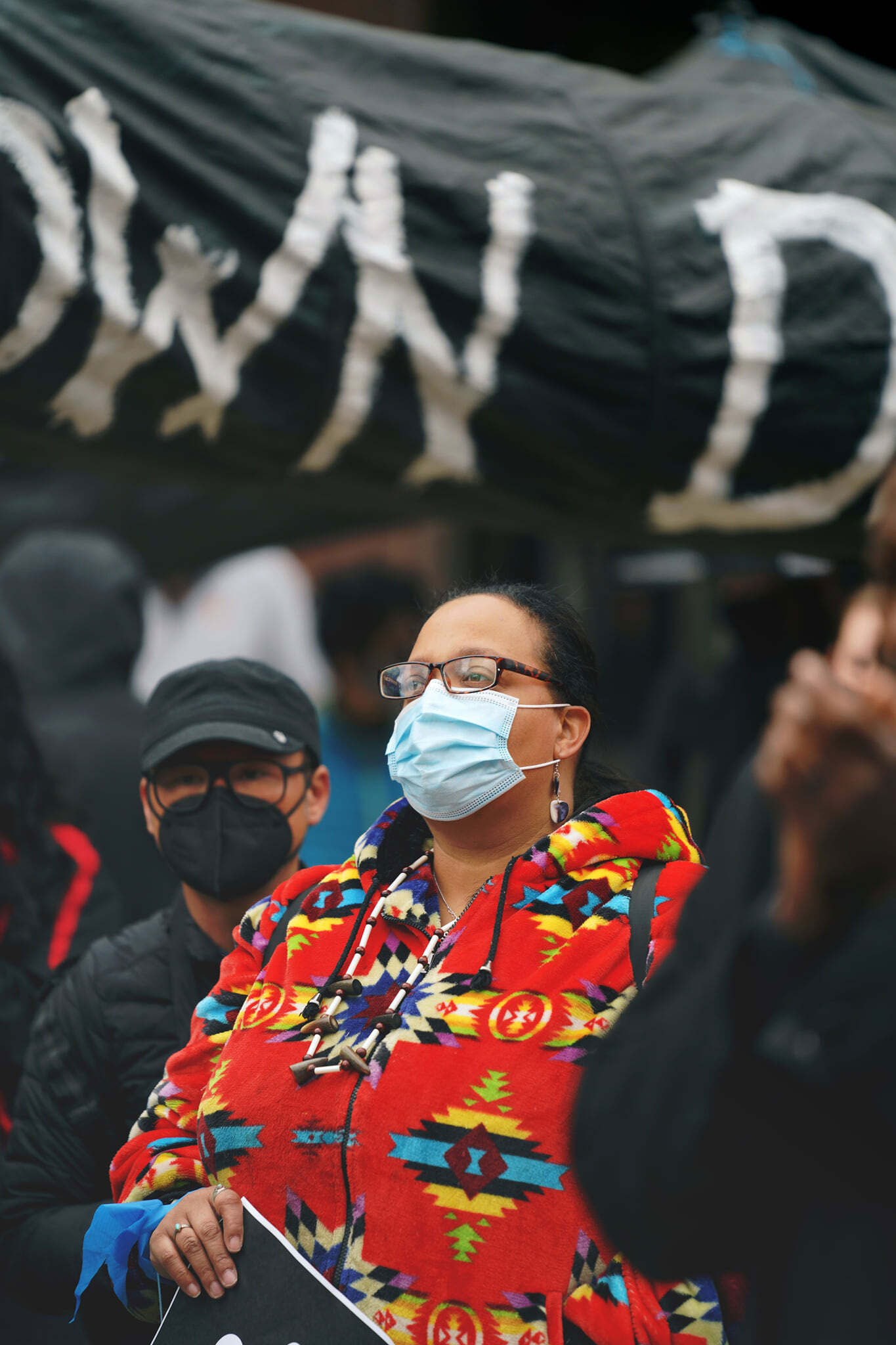
The 42-inch-diameter pipeline would receive gas from the Mountain Valley mainline, a 300-mile line that originates in the gas-rich shales of West Virginia. Designed to transport 2 billion cubic feet of natural gas per day, the multi-billion-dollar mainline has been under construction since 2018 and is nearly complete, according to Mountain Valley Pipeline, LLC, a joint venture that includes Equitrans Midstream Corp.
MVP’s developers have amassed more than 300 violations of environmental laws, and — with the blessing of the Federal Energy Regulatory Commission, or FERC — have forced landowners along the pipeline to sell chunks of their property.
When Cavalier-Keck learned the developers were planning to condemn properties in North Carolina so they could build on the ancestral lands of the Occaneechi, the Monacan Indian Nation and other tribes, she decided to take action. In late 2018, she resigned from her position on the tribal council so she could speak out against the project without impeding the tribe’s efforts to consult with the government on the project.
Cavalier-Keck has helped lead a grassroots resistance movement over the past three years, organizing protests and marches partly to embolden Occaneechi residents, she said. Owing to the tribe’s history of displacement and forced relocation, she said, members are often afraid to speak out against government-sanctioned actions.
“We know we can’t have a Standing Rock, but we want to bring people together and let them know that it’s OK to fight back and speak out against these things,” said Cavalier-Keck, who is a member of the Native Organizers Alliance.
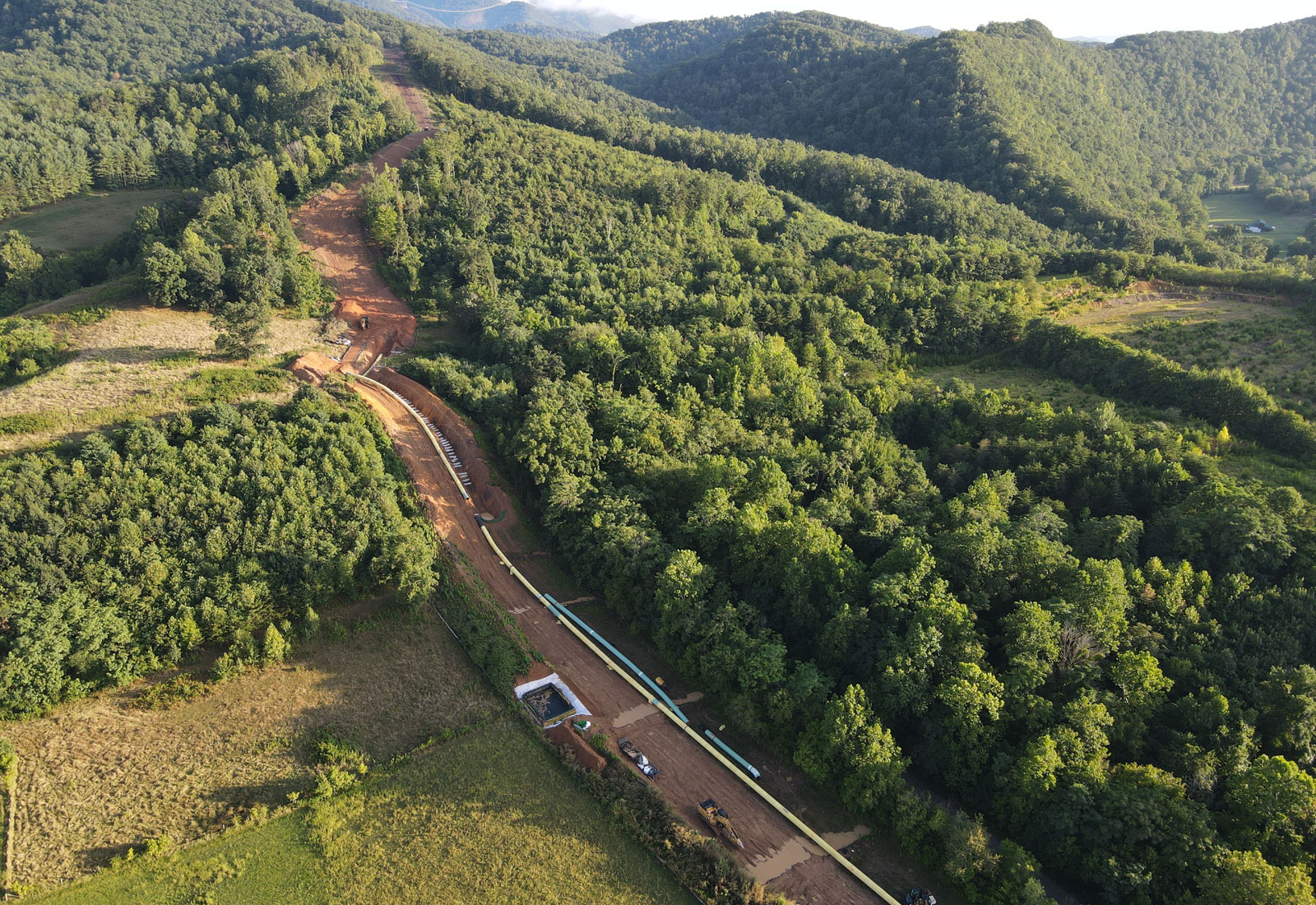
Compared to national media coverage of other fracked-gas pipelines — like the Atlantic Coast Pipeline, which was canceled last year, and the recently scuttled PennEast Pipeline — MVP has largely flown under the radar, said Gillian Giannetti, an attorney with the National Resources Defense Council. That may be because it runs through largely rural, relatively low-income areas that are likely unfamiliar to many residents of the region’s urban areas, she said.
“There is no doubt that folks who are environmentally and economically disadvantaged would bear the brunt of the Mountain Valley Pipeline and would not reap the benefits,” Giannetti said. The attorney contends that FERC should have rejected the project on a number of grounds, ranging from a general lack of need to water-quality and climate impacts.
Proponents of natural gas development often tout it as a clean-burning alternative to other fossil fuels. But environmental groups have estimated that the MVP mainline could contribute nearly 90 million metric tons in greenhouse gas emissions annually from both the combustion of the gas and methane leaks. Although methane stays in the atmosphere for a much shorter timespan than CO2, it is a far more powerful greenhouse gas, accounting for about 30 percent of the warming the world has experienced since the pre-industrial era.
Over the past three years, Desiree Shelley (Monacan) has seen the mainline project carve through the steep, rocky terrain of the Blue Ridge Mountains in Roanoke County, Virginia. The mother of three said the pipeline has created landslide risks and wreaked havoc on riparian ecosystems. In areas where the project crosses a stream, dredging activities can send large volumes of sediment downstream, causing fish die-offs and impacting drinking water quality in cities like Roanoke.
“Sedimentation of the water can damage waterways irreparably and impact aquatic wildlife” such as the endangered Roanoke logperch, said Shelley, who is a climate justice organizer with Mothers Out Front.
The mainline project, which has been mired in litigation and regulatory setbacks, is currently on hold as MVP seeks federal and state permits that would allow it to cross certain waterways in Virginia and West Virginia. In North Carolina, the proposed extension has stalled after the state’s Department of Environmental Quality denied a key water quality permit—twice.
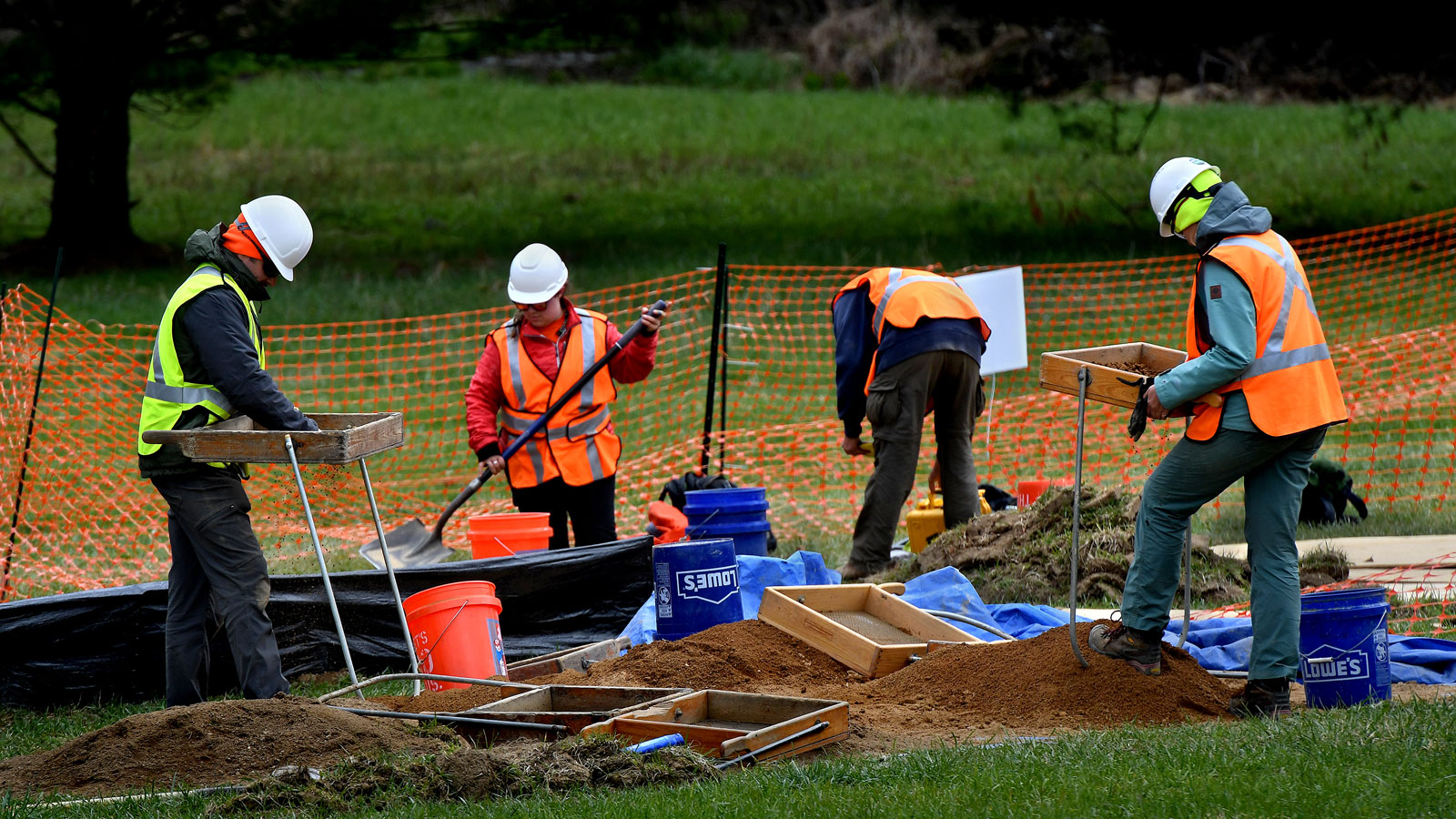
Shelley has been working alongside Cavalier-Keck to raise awareness about the projects’ potential impacts on local residents, particularly Indigenous groups and predominantly Black communities.
In Pittsylvania County, Virginia, Anderson Jones lives on farmland that his great uncle purchased in the 1920s. Over the past several decades, the rolling hills that surround the property have become a hub for gas infrastructure. A compressor station for the Transco pipeline, built in the 1950s, rises a quarter-mile from the farm. Two years ago, MVP moved into the neighborhood; the developers built part of the mainline a few hundred yards away from Jones’ home, taking several acres owned by members of his family in the process. The Southgate Extension, if approved, would begin at a compressor station about 400 feet from the property.
Jones and his wife, Elizabeth, have voiced their opposition to the project at public meetings, drawing attention to the toxic air pollutants emitted by compressor stations. Elizabeth Jones, who is chair of the Pittsylvania County NAACP’s environmental justice committee, said the siting of pipelines in predominantly Black communities — such as the “majority-minority” district in which the Andersons reside — leads to increased risk of cancer and other diseases in those communities.
“African Americans are being targeted for the placement of gas plants, and we want the regulatory commissions to end this,” Elizabeth Jones said. “We are breathing in toxic emissions and, as a result, we’re dying.”
Anderson Jones identified as African American for most of his life until, several years ago, genetic testing revealed that he is part Native American. He has since learned more about the local tribes with the help of Cavalier-Keck, whose ancestry also includes African heritage. Anderson Jones said his recent ancestors probably concealed their Indigenous heritage to prevent being forced to live on a reservation, which they referred to as a “death camp.”
“They didn’t want to go there, so they left the land and lived among the Blacks,” he said.
Over the years, Anderson Jones has found dozens of arrow points and stone tools throughout the area, including on the strip of his family’s land where the mainline was constructed. MVP surveyors have identified hundreds of artifacts along the path of construction, though opponents have accused the project team of skirting laws intended to protect cultural resources.
A landowner in Bent Mountain, Virginia, filed multiple complaints with FERC claiming that MVP surveyors had ignored the presence of an Indigenous burial mound. In a letter to the agency, the landowner said multiple tribal historic preservation officers confirmed that the arrangement of stones was consistent with traditional burial mounds built by certain Siouan-speaking tribes, a group that includes the Monacan and Occaneechi tribes.
MVP described the mound in reports as a “pile of rocks” that resulted from modern agricultural activity. Nevertheless, MVP agreed to alter the route slightly to avoid the mound.
Mara Robbins, a local writer and environmentalist who knows the landowner, watched as construction workers clear-cut the trees that surrounded the 15-foot-long mound, which was encircled by flimsy construction fencing. Robbins said the surrounding area contained “several smaller structures that were unfortunately destroyed.”
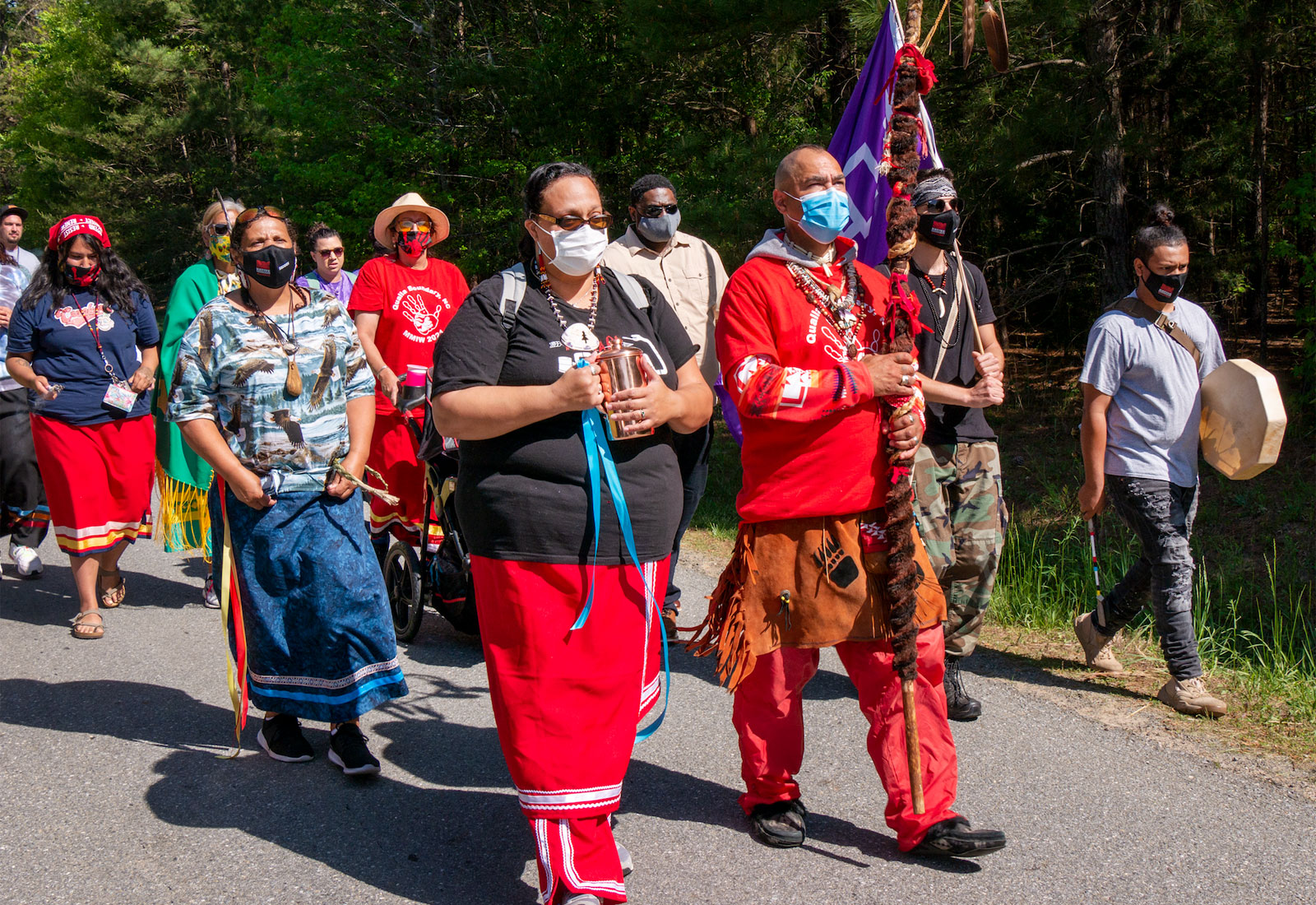
Across the state line in North Carolina, the Occaneechi Band is one of many Indigenous cultures that have occupied or moved through the region over time. Archaeologists have recorded hundreds of culturally significant sites in the county, including stone fishing weirs and documented burial grounds.
Cavalier-Keck and other opponents of the extension are afraid the pipeline would endanger those sites. In an email, a spokesperson with MVP said the company “has performed extensive cultural survey work along the proposed route to identify eligible cultural sites,” and that “no known Native American burial grounds have been found to date.”
Surveyors hired by the company have identified at least 61 archaeological resources within the project area in North Carolina. MVP would avoid some of those areas, but the company deemed the majority of them to be ineligible for listing as a protected historic site.
Tony Hayes, who is the chairman of Occaneechi Band, said he is not aware of any culturally significant Occaneechi sites that lie directly in the proposed path of the project. He said the tribe is gathering information and has sought additional consultation with federal regulators, a process that can be difficult for a tribe that isn’t federally recognized.
“FERC doesn’t really take state-recognized tribes seriously,” Hayes said.
Cavalier-Keck, meanwhile, continues to fight the pipeline. In the coming months, she and other Indigenous women will lead a ceremonial “water walk,” from Alamance County to the North Carolina coast, during which women will carry a vessel of water in relay. She worked with Shelley to translate the phrase “water is life” — a common refrain among Indigenous water protectors — into their shared ancestral language. Written as “mani:en:ise,” the phrase is closer in meaning to “water is alive.”
MVP is now seeking new water-quality certifications in Virginia and West Virginia that would allow the project team to cross hundreds of waterways in those states. In North Carolina, the Southgate project is currently prohibited from crossing a single waterway.
